Towards the end of July, I made another visit to the United Kingdom – my first for two years. The primary purpose of the trip was to defend my doctoral dissertation at the University of Buckingham, but I intended to complement the ordeal with some more research at the National Archives at Kew, and at the Bodleian Library in Oxford, as well as see some old friends, and make personal acquaintance with some contacts that I had established through email introductions. I arrived soon after the Brexit referendum took place, so post mortems on the result, and on the process, were high on the agendas of those I spent time with.
After landing at Heathrow, I took my rented car round to Croydon, where I met for lunch my first host, David Earl, and a few old friends at Croham Hurst Golf Club, and then went to stay with David and his wife, Mieke. Mieke, alas, had recently broken her hip in a fall in her native Netherlands, but she was still her irresistibly ebullient self. Unfortunately, during that initial weekend, my back started convulsing with agonizing spasms, with the result that I was lying immobile on the floor by Monday morning. This necessitated attention being diverted from Mieke’s condition to mine (a phenomenon she bore with good grace), and, after I had illicitly taken three of her (non-opioid) pain-killing pills with no effect, it was David who came to the rescue by acquiring some simple heat-pad strips. Their application had a truly miraculous effect within a matter of hours, thus enabling me to continue my journey to Battersea that afternoon. On the Saturday, I had also managed to drive out to Oxted to see another pair of very old friends, Peter and Pia Skeen (Peter having been my best man back in 1976). They generously fitted me in while waiting for their son, Torsten, and his family to arrive from Dubai that afternoon, and sensibly agreed that they would pay closer attention to their personal schedules when my next visit was impending.
I spent a few days with my brother Michael and his wife, Susanna, in Battersea. Susanna has been undergoing a very arduous treatment of chemotherapy for breast cancer, but if anyone has the indomitability and will to beat it, it is she. (She was scheduled for surgery the day I left the UK, August 9.) I was received with the utmost hospitality, and enjoyed some deep discussions on many topics with Michael, who has an excellent brain – especially on financial matters – and who in my opinion expresses more insight and common sense than several economists who have won Nobel Prizes. (You know who you are.) I encouraged Michael to write up his thoughts. Meanwhile, the days of that week were spent in the National Archives, at Kew, a drive of about thirty minutes away. I was able to inspect several files there – too late for my thesis, of course, but research does not stop for artificial timetables ̶ on Guy Burgess, on the ISCOT programme to decipher Soviet diplomatic traffic in 1943, on GCHQ, on the Kuczynskis, and on miscellaneous other MI5 and Foreign Office material.
While at Kew, I was privileged to have a meeting with Chris Mumby, Head of Commercial Services at the Archives. Last year I had written to him, expressing my interest in the process of digitisation, and explaining how difficult it could be for a remote researcher to identify and inspect important files. Those that have been digitised are available for a very reasonable fee, but constitute only a small percentage of the total, while a request for the digitisation of any thick folder (for personal purposes, though with universal benefit) is penally expensive. I was also intrigued by the arrangement The National Archives had made with Taylor and Francis, a company that makes selective documents available to subscribers, and how that contract related to the Archives’ own initiatives. Finally, I had expressed my astonishment that everyone was allowed access to Kew for free – even foreign residents like me. The Archives bear certain statutory obligations, but the more successful they are in attracting visitors, the more their support costs go up, at a time of static budgets. Could the Archives perhaps not charge admission fees, and perhaps establish a tax-free charity that could allow well-wishers to make donations to alleviate operating costs? I found a very professional and attentive ear in Mr. Mumby, and have every sympathy with him and his colleagues in their challenges. Enough said, for now.
I also met for dinner an old friend, and a new acquaintance. I have been collaborating with the screenwriter Grant Eustace (see http://www.granteustace.co.uk/) , with whom I used to play rugby at the Old Whitgiftians. He has produced a script based on aspects of my thesis, and I was pleased to meet him again, as well as his charming wife, Janie, at a restaurant in Kew, where we could exchange laments about dealing with the worlds of publishing and of other media. (A Hollywood producer had chanced upon my writings on ‘Sonia’s Radio’, but regrettably nothing came of it.) The next evening, I went up to Westminster to meet Andrew Lownie (see http://www.andrewlownie.co.uk/) , who published a very well-received biography of Guy Burgess, Stalin’s Englishman, last year. It was Andrew who introduced me to a vital document, released to the National Archives last September, which essentially proved my emerging hypothesis about Guy Burgess’s mission to Moscow in 1940. Andrew and I have exchanged insights and findings on Burgess and his murky dealings with such as Isaiah Berlin and Joseph Ball, and it was productive to sit down face-to-face at last. I had to express some disappointment: when his book was published last year, I sent him a comprehensive list of observations and corrigenda. This summer, the work was re-issued as a paperback, but, while it contained some corrections, and some expanded Notes, no indication was given that the text had been changed. Moreover, while some of my emendations had been incorporated, rather sloppily some had been overlooked, and the author had not added my name in the list of Acknowledgments. Andrew has apologised. He has had his own struggles with the publisher. And we remain on good terms.
On Saturday, Michael, Susanna and I took a trip out to Chiswick Park, off the A4, one of those extraordinary lungs within Greater London’s boundaries. Unfortunately, Chiswick House itself, ‘one of the finest examples of neo-Palladian design in England’ was closed on the Saturday, but we were able to take a leisurely stroll around the gardens.
Several renowned names are connected with the House: as the website (http://www.chgt.org.uk/) declares, somewhat enigmatically: “Leader of fashion and political activist for the Whig party, Georgiana Duchess of Devonshire referred to her home at Chiswick House as ‘my earthly paradise’. Her parties and political breakfasts at Chiswick were renowned and notable guests included the politician Charles James Fox who later died in the Bed Chamber in 1806.” We are left to guess what he was up to earlier – before breakfast, presumably. I present a photograph of Michael and Susanna at the fountain, for the record.
The next day, I made my way to Oxford, where I would stay at the Holiday Inn, within ‘Park and Ride’ access to the town centre. Most of Monday and Tuesday were spent in the new Weston Library of the Bodleian, where I had arranged to study the files of Sir Patrick Reilly and Sir Joseph Ball, as well as letters that Sir Rudolf Peierls, the sponsor of, and collaborator with, the atom spy Klaus Fuchs, had written to various scientists during the course of Fuchs’s arrest and conviction. All three sources were as revealing because of what they did not say as much as for what was explicit. I also was shown round the new library by Jessica Brown of the Development Office, and specifically led to the carrell that I had donated a year or two back .
The fixture is a slightly ostentatious but genuine gesture of appreciation for how Oxford has helped in my career: I do not believe I recognised it at the time, but Harold Macmillan’s 1975 observation that an Oxford education should teach you to detect whenever someone is telling you obvious rot (a dictum that he claimed he learned from the philosopher John Alexander Smith) has remained with me ever since, and has stood me in good stead in my life.
My supervisor at Buckingham, Professor Anthony Glees, lives in Woodstock, just north of Oxford, and he kindly invited me for cocktails on the Monday, so I was pleased to see him again, and meet his charming wife, Linda. After more research on Tuesday morning, I repaired to my old college, Christ Church (known as ‘the House’) where Simon Offen, of the Development and Alumni office, generously entertained me to lunch, after which Cristina Neagu, the Keeper of the Special Collections in the Christ Church Library, showed me a fascinating array of old texts that have only recently been closely examined. She also took me into the tower of the library, where an extraordinary camera (known, I think, as the ‘Graz’ machine) allows delicate documents to be photographed quickly, safely, and accurately, thus contributing to a series of world-wide collaborative projects after the images are passed to the Bodleian for publication (see http://www.chch.ox.ac.uk/library-and-archives/digital-library). I also bumped into the Dean of Christ Church, the Very Revd. Professor Martyn Percy, who gave me a warm and enthusiastic welcome, after which we discussed, among other things, our shared lack of genealogical propinquity to the Dukes of Northumberland. That evening, I dined alone at The Trout at Godstow, only a few minutes away from the Holiday Inn, which has always been one of my favourite hostelries ever since I first went there in 1966. And the following morning I made my way to Buckingham for my viva.
I was honoured to have Sir Anthony Seldon and Professor Christopher Coker as my internal and external examiners, respectively. Moreover, I was gratified, immediately on entering the examination room, to be told that my thesis had been accepted – without any recommendations for changes. While this left the notion of the ‘defence’ of my thesis hanging in the air, it was the best kind of surprise. Thus “Confronting Stalin’s ‘Elite Force’: MI5’s Handling of Communist Subversion, 1939-1941” is now in the record books, although I have requested a suspension of promulgation of the text pending my attempts to convert it into a book. I enjoyed some interesting exchanges with my examiners, but the whole process was over in about three-quarters of an hour. At the end, knowing that Sir Anthony’s first teaching assignment had been at Whitgift School in 1983, I asked him whether he had encountered my father, Freddie, who, although having retired by then, was still active as historian and archivist, and would have taken a very strong interest in new members of staff. ‘F.H.G. Percy!’, he exclaimed. ‘That great man! (or words to that effect)’. He had never connected my name to his. [Late in August, I received a very generous note from Sir Anthony, which ran: ‘Many congratulations on an excellent Ph.D., and in memory of your distinguished and great father.’]
Then back to Battersea, to celebrate with champagne. The next morning I was off to the House of Lords, as Lord and Lady Young of Cookham had kindly invited me on a tour of the Houses, and to lunch. Aurelia, Lady Young has been a close friend of Professor Glees since childhood, and the Professor had introduced me to her (via email), as he believed I might have some insights into the history of her father, the Croatian sculptor, Oscar Nemon, based on my researches into the treatment by MI5 and the Home Office of émigré Jews in the late 1930s. Diligent readers may recall my reference to this wonderful lady in an earlier piece, to be found at https://coldspur.com/reviews/some-reflections-on-the-north-downs.
I was delighted to see the several busts crafted by her father in the Houses of Parliament: for some reason, I had never toured the place (was it not open to the public when I was growing up?), and it was very enjoyable to sit on the terrace with the London Eye in view. Lord Young, who has had a distinguished career in politics, is now a whip in the House of Lords. He was also at Christ Church, graduating shortly before I matriculated, so the photograph here probably represents our sharing memories of Christ Church personalities rather than his Lordship’s seeking my opinions on the security implications of Brexit.
The next day, I drove down to Dorset, to stay with another couple of old friends, Brian Wizard and his delightful wife, Sue, who own a very attractive cottage (actually, joined cottages) in Tarrant Monkton. Brian and I worked together in IT back in the 1970s, so we share a lot of memories of the software business, its heroes and its villains. Like me, Brian is very impatient of bureaucratic bumbling and obfuscation, and likes to write letters with a view to dismantling evasiveness and irresponsibility, so I was pleased to catch up with his latest exploits. The Wizards’ property rolls right down to, and then bridges, the River Tarrant, and as the photographs show, is a beautiful example of the art of country gardening.
Observant watchers may notice that Brian (notwithstanding his other excellent attributes) is a little challenged in the stature department: this feature, however, does enable him to walk around his cottage without stooping, while I am always in danger of bumping my head. I have thus asked him to consider raising the roof for my next visit. He and Sue regaled me with a very generous dinner in compensation for my discomfort.
On Saturday, onwards to Stow-on-the-Wold, a journey that reminded me that the British road system is quite good so long as you are travelling on radials from London. Still, it was a glorious drive through Cranborne Chase, followed by a rather boring patch until I arrived in the Cotswolds. There I was to stay a couple of nights with Derek and Maggie Taylor, Derek being a contemporary of mine at Christ Church, and the recent author of a couple of books (see www.derekjtaylorbooks.com ), about whom I have written on this blog. The Taylors had arranged a dinner where I was to meet an acquaintance whom I had not seen for almost fifty years – another House man, Nigel Robbins, who lives down the road in Cirencester with his wife, Stephanie. The next day, the three of us drove out to Snowshill Manor, an exquisitely situated house that was once owned by the eccentric collector Charles Wade.
In the evening we dined at the ‘Hare’ in Milton-under-Wychwood. There is little doubt in my mind that, if I ever returned to live in the UK, it would be somewhere in the Cotswolds. But English winters, after fifteen years in North Carolina? No, thank you.
So what about Brexit? Well, at my age, one tends to socialise with people whose views tend to echo one’s own, but I listened to – and read – a variety of opinions. First, some paradoxes. It seems bewildering to me that the European Union has been represented – both by some Remainers as well as by certain Leavers – as an exemplar of free-market global capitalism. (In his new book ,‘The Euro’, Joseph Stiglitz repeatedly makes the astonishing assertion that the problems of the euro are attributable to the ‘neoliberal ideology’ of its designers). The European Union is in fact a closed club, a customs union, with expensive barriers to entry, and the use of the euro imposes a number of stringent rules. Some pro-EU observers assert that the nation-state is irrelevant in an era of globalisation, but, by the same token, the attempts of the Union’s regulators to maintain economic ‘stability’ will be as futile as those of an individual country. I also found it extraordinary how many Remainers drew attention to the loss in funding that would occur with Brexit, as if the Union were a rich uncle, and other countries were simply panting to hand over their hard-earned surpluses to subsidise British social projects. I was astonished at how many of the chattering classes, intellectuals, artists and luvvies, saw Brexit as the end of civilization, as if all cultural ties and links to Europe (of which Britain would still be a member) would have to be sundered if Article 50 were to be invoked. I was intrigued that, on the troublesome immigration issue, the more attractive business climate, the cultural pluralism, and the native language of Britain all conspire to make Britain a more attractive destination for entrepreneurial young persons. (I cannot see English plumbers looking for work in Gdansk or Bucharest.) I was appalled at the lack of preparation by David Cameron’s administration for the outcome of an ‘Exit’ vote in the referendum, something he should explicitly have considered even though he regarded ‘Remain’ as a foregone conclusion. My impression of Cameron, incidentally, was not improved by reading Sir Anthony Seldon’s book on the ex-Prime Minister, the paperback version of which came out shortly before I arrived.
Somewhat emotionally, I believe that it was timely and courageous to attempt an exit now, rather than later. (“Very bold, Prime Minister”, as Sir Humphrey would have subtly admonished.) If the answer to the Union’s challenges is more integration, not less, then getting out as soon as possible is the right response. Even the Union’s stoutest defenders now recognize that the Euro is mortally wounded, and any efforts by the Eurocrats to make exit highly painful and onerous, and scare off any other pretenders, will only confirm how unaccountable and unresponsive the European council and parliament are – what has been called ‘the democratic deficit’. With a belief that budgets and political programmes are best exercised at the national level, and that part of our British democratic process has been [sic: can this continue with the implosion of the Labour Party?] ‘throwing this lot out and letting the others have a chance’ (would there ever be an official opposition in Brussels that was for decelerating the ‘European Project’?), I suspect something messy, but not nearly as dire or as wonderful as either camp would claim, will emerge. As for taking back control of legislation, however, I must confess to some doubts whether the British civil servants and parliament are any better than their EU counterparts, if the recent laws on hate-crimes are any indication. James Alexander Smith, we need you now. (I am more interested in Brexit than in the appalling saga of the US presidential elections, by the way, in case you hadn’t guessed.)
Monday afternoon saw me spending an enjoyable couple of hours in Burford, where, among other things, I bought a copy of Clive James’s elegiac Sentenced to Life, and then I made my way to a hotel near Heathrow, so that I could return my rental car in good time the next morning. In the exit-lounge, as I waited to board, a young man offered me a seat, which I graciously declined. Have I suddenly become that old? It seems only a short while ago that I was offering my seat to the elderly. I shall be seventy in December: maybe everything up until this point has been achievement, and now begins the slow trudge downhill. But enough of gloomy thoughts: too much Clive James, perhaps. Better to relax on the plane ̶ a little sparkling wine, and keep decline at bay by tackling the Times’s Saturday crosswords. Meanwhile, I mentally prepared myself for what I should do if an emergency message came on the intercom: ‘Is there a doctor on board?’, planning to rush over to deliver a soothing lecture on Isaiah Berlin and Guy Burgess to the afflicted passenger, but, mercifully for all, no call came. Instead I sank back to watch a Classic Movie – not ‘Doctor in the House’, but, from the same era, a piece of frothy nonsense titled ‘Funny Face’ (1957), which I had seen for the first and only time soon after it came out. It was redeemed, of course, by the bewitching Audrey Hepburn. I recalled several of the scenes very clearly, and the show put me into a nostalgic mood. ‘Das Ewig-Weibliche zieht uns hinan’, and, after an unnecessarily long layover in Charlotte, I was overjoyed to see my ever-lovely wife and daughter waiting at Wilmington Airport to drive me home to Southport.
A very rewarding two-and-a-half weeks.
P.S. Susanna’s operation went well. She returned home to Battersea on August 14, and is recovering steadily, despite considerable discomfort and pain.
P.P.S. I have just spent several hours processing about 5,000 responses to my posts that had accumulated on my website since the beginning of 2015, and which I had carelessly ignored. This was no easy task: I had to inspect every individual response. Most were software-generated. The system did present them in batches of twenty, each of which I could mark, and then ‘block-process’ as spam, but some of the posts were hundreds of lines long, containing dummy and real urls, requiring dozens of clicks to process each. Probably only 1% were genuine posts, with most of the rest coming from vendors of cheap merchandise, or people trying to sell me web optimisation services, and some bewilderingly not appearing to have any purpose at all. But when a responder shows his enthusiasm for ‘The Undercover Egghead’ by titling his response ‘Cheap Ray-Bans’, or another tells me how ‘utterly beneficial’ he found my piece on ‘Richie Benaud, My Part in His Success’ for his ‘True Religion Outlet’ posting, the haphazardness and futility of the exercise became clear. Presumably their originators believed that their posts would appear on Search engines without my having to ‘approve’ them. If I did miss, because of the purge, a sincerely targeted comment from any of my readers, I apologise. And if I had had the sense to mark each item of spam as such as soon as it arrived, I might have avoided the problem.
August’s Commonplace entries appear here. (August 31, 2016)

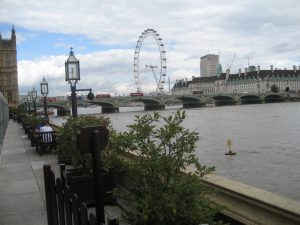
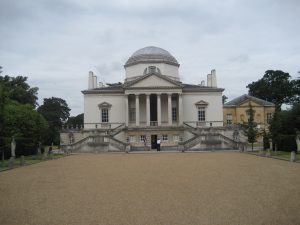
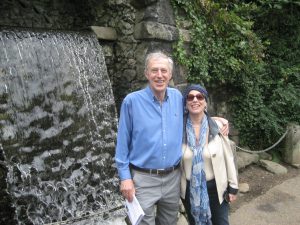
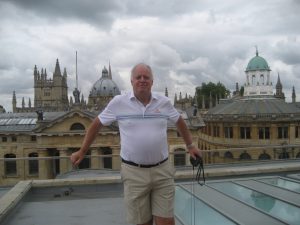
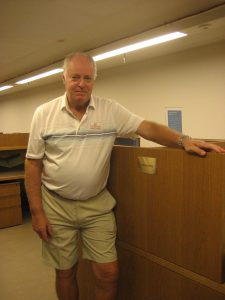
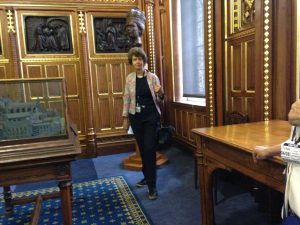
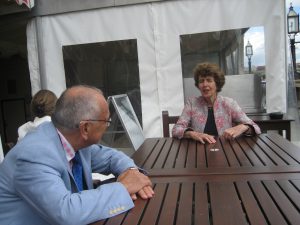
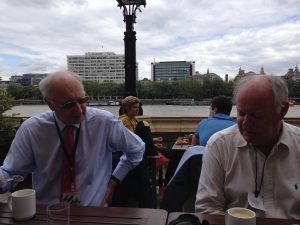
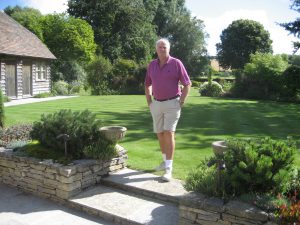
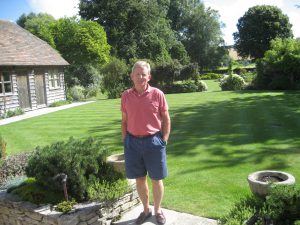
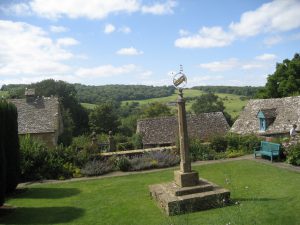
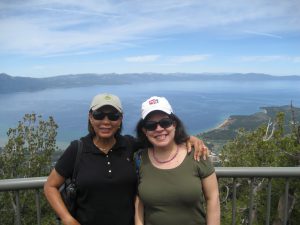
Very informative post, thank you very much!
Good experience.